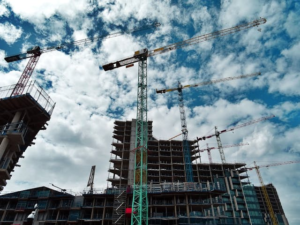
Planning is the most difficult part of any project. For carrying out the actual tasks, you have a lot of options. But for planning, the person who knows the most about the input and output of the project, and everything surrounding it, needs to the planning. That is why, you can’t just leave it to someone else.
When you are planning, you need to keep in mind the deadlines, the budgets, and the challenges that can come during construction. Now, when you add sustainability to the mix, you have even more to think about.
But, sustainably isn’t just a trend these days, it’s becoming a necessity. Not only does it benefit the environment, but it can also save you money in the long run.
So, to help you out, here are some considerations for sustainable commercial construction planning that you should keep in mind.
1. Choose Eco-Friendly Materials:
While planning your construction project, you should think about the materials you will need to use. Rather than the traditional materials, consider looking into eco-friendly alternatives that can reduce your project’s environmental footprint. These materials should be renewable, recycled, or locally sourced.
These materials not only help conserve natural resources but also tend to be more durable, which means less maintenance and replacement costs down the line.
2. Prioritize Energy Efficiency:
Energy consumption is a significant contributor to environmental degradation. By prioritizing energy efficiency in your construction planning, you can minimize your project’s carbon footprint and save on long-term operational costs.
Consider incorporating features like high-performance insulation, energy-efficient lighting, and smart HVAC systems into your design. These upgrades may require a bigger initial investment but can lead to massive savings on energy bills over time.
3. Implement Water Conservation Strategies:
Depending on where you live, you might have to think about water conservation. But, even if your region has no water problems at the moment, the structure you are building will stand tall for decades to come. Since water scarcity is a pressing global issue, water conservation is a crucial consideration in sustainable construction planning.
For starters, you need to properly plan the underground utility system. Then, you can look into water-efficient fixtures and irrigation systems to minimize water waste.
Don’t forget, by conserving water, you can also lower your utility bills.
4. Minimize Construction Waste:
Construction projects generate a significant amount of waste, much of which ends up in landfills. To minimize your project’s environmental impact, develop a waste management plan that prioritizes waste reduction, reuse, and recycling.
Sort materials on-site to divert recyclable materials from the landfill and consider donating unused materials to local charities or reuse centers. Additionally, explore opportunities for deconstruction rather than demolition, which can salvage valuable materials for reuse in future projects.
5. Consider Site-Specific Factors:
Every construction site is unique, with its own set of environmental challenges and opportunities. That is why you need to carry out a thorough site assessment to identify potential impacts on local ecosystems, water resources, and surrounding communities before you hire crane rental services and machinery to break ground.
Incorporate site-specific mitigation measures into your construction plans to minimize disruption and preserve natural habitats. Additionally, consider the long-term implications of your project on the local environment and community, and strive to leave a positive legacy for future generations.
ShopingCheckout | TrendhubTreasure | DigiNetTrail | WebSpacedDesign | MarketingGlobalNews | findmylinksnow | ladyboydubai
